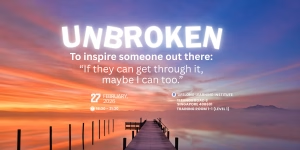People talking about other people when they should be talking about themselves

Christmas Gathering is an excellent time to catch up with friends and reflect on one's progress
Festive gatherings like Christmas and New Year bring loved ones together, fostering connection and joy. However, these celebrations often turn into moments of gossip, where conversations shift to discussing others. While such talk may seem harmless, it can strain relationships and distract from the true purpose of coming together: meaningful connection.
Blind Spots: Turning the Lens Inward for Personal and Societal Growth

It’s easy to spot a flaw in someone else. Perhaps it’s a colleague who is always late, a family member who interrupts conversations, or a neighbor who doesn’t maintain their lawn. We’re quick to critique, analyze, and even judge. But how often do we pause to ask ourselves: Do I make similar mistakes?
This tendency to look outward rather than inward reflects our “blind spots”—behaviors or attitudes we don’t recognize in ourselves but readily identify in others. These blind spots, if left unchecked, can stifle personal growth, strain relationships, and hinder collective progress.
Why Do We Focus Outward?
Criticizing others can feel easier and less vulnerable than acknowledging our own shortcomings. It provides a temporary sense of superiority and absolves us of the responsibility to change. But this mindset is limiting, not liberating. When we focus solely on the faults of others, we miss the opportunity to reflect, grow, and improve.

Steps to Turn Inward
To address these blind spots, we must shift our focus from outward criticism to inward reflection. Here are three actionable ways to start:
1. Ask Yourself: Am I Guilty of the Same Mistake?
When you notice a behavior you dislike in someone else, take a moment to introspect. Do you ever interrupt conversations, show up late, or fail to listen attentively? The answer may surprise you. Adopting this practice fosters empathy and humility, as you recognize your shared humanity.
2. Invite Honest Feedback
Asking others to critique you might feel uncomfortable, but it is an invaluable tool for self-awareness. Friends, colleagues, or mentors can offer perspectives on behaviors you may not notice. Frame your request with openness and gratitude, assuring them you value their honesty.
3. Leverage Quantitative Tools
Modern tools provide a data-driven approach to self-improvement:
- Video Feedback: Recording and reviewing your interactions can reveal habits you weren’t aware of, such as poor posture, interrupting others, or a dismissive tone.
- Psychometric Tools: Instruments like IDENTI3 profiling uncover inherent personality traits, strengths, and areas for growth. These insights enable targeted self-improvement and enhance interpersonal understanding.
The Bigger Picture

When we focus on improving ourselves rather than criticizing others, we not only grow individually but also contribute to a healthier, more empathetic society. Imagine workplaces where employees strive to understand their blind spots, families where members actively improve their communication, and communities where self-awareness fosters unity.
Eleanor Roosevelt, a trailblazing First Lady, humanitarian, and diplomat, championed human rights, gender equality, and social justice worldwide, quote highlights the levels of intellectual engagement. “Great minds” focus on ideas, innovation, and vision, fostering progress and meaningful change. “Average minds” center on events, reflecting on occurrences without deeper analysis. “Small minds” criticize or gossip about people, limiting growth and perspective. The quote encourages shifting attention from trivial matters to higher-level thinking, cultivating self-awareness and inspiring conversations that positively impact ourselves and the world.
“Great people talk about ideas, Average people talk about things, and Small people talk about other people”
Eleanor Roosevelt
A Call to Action
Blind spots are part of being human, but they don’t have to remain hidden. By turning the lens inward, we unlock the potential for profound personal and societal transformation.
Let’s challenge ourselves to pause before judging, reflect before reacting, and seek growth over comfort. After all, when each of us becomes better, the collective benefits are immeasurable.
So, the next time you catch yourself criticizing someone else, take a deep breath and ask: What can I learn about myself here? The answer might just change your life—and the world around you.






